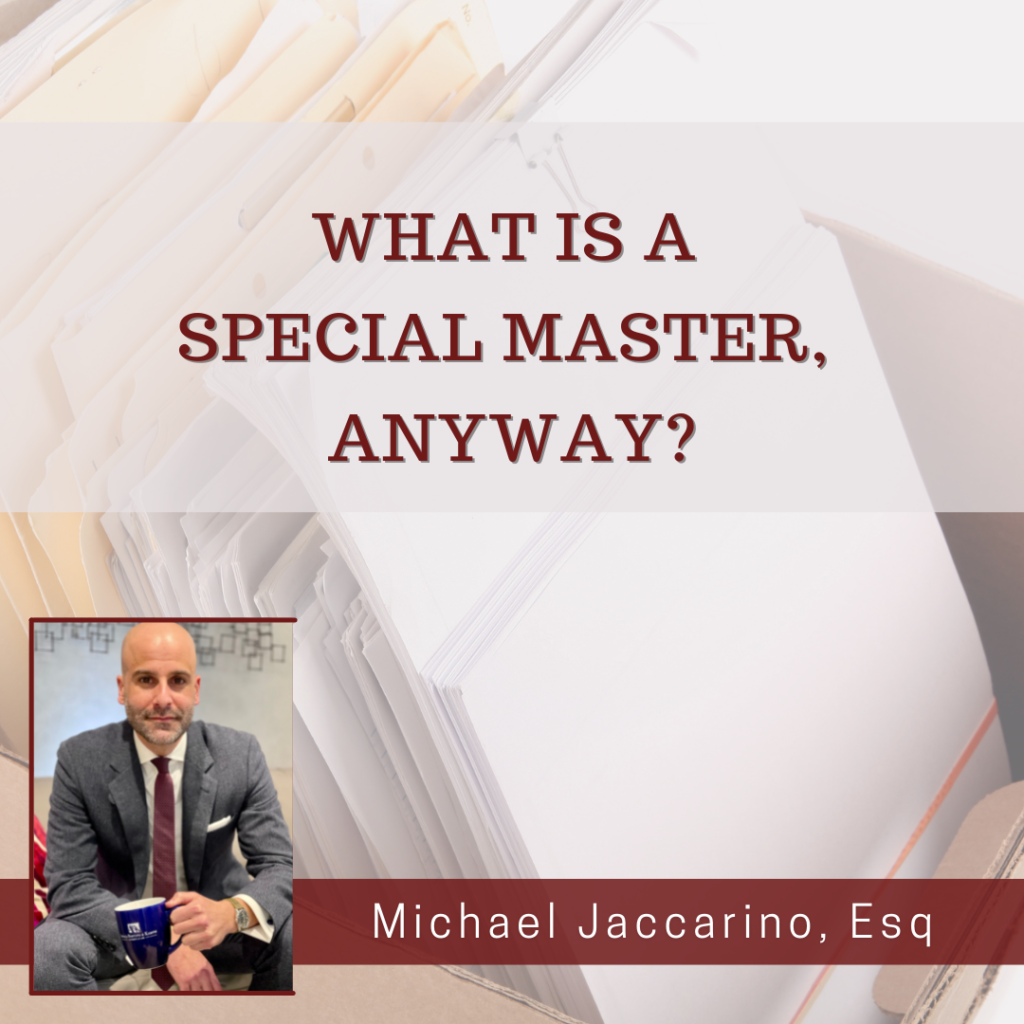ON BEHALF OF MICHAEL JACCARINO, ESQ. OF AIDALA, BERTUNA & KAMINS, PC POSTED IN BLOG ON MONDAY, September 12, 2022
What is a Special Master, anyway?
Last week, a decision by a US federal judge to stop the investigation of Donald Trump’s seizure of classified documents until a “special master” reviews them has thrown the political and legal worlds into uproar – pitting those who believe the ex-president has special legal privileges against those who think he should be treated like any other citizen.
The procedural victory for Trump means the Department of Justice will have to press pause on its effort to determine whether the former president may have illegally run off with classified documents from the White House and kept them at his home in Mar-a-Lago.
Judge Aileen Cannon, a Trump appointee, agreed to his request that a special master, a kind of independent mediator, review the roughly 11,000 documents that the FBI discovered and seized when it searched Mar-a-Lago last month – some of which the FBI said were marked “classified”, “secret” and “top secret”.
In granting Mr. Trump’s request, the judge, Aileen M. Cannon of the Southern District of Florida, gave the so-called special master expansive powers, with the authority to evaluate documents not only for those covered by attorney-client privilege, but also for those potentially protected by executive privilege.
So, what is a special master?
Simply put, a special master is a person appointed by a judge to assist the court with its proceedings. A special master is selected to help with a particular matter or case, in contrast to a standing master, who is installed to help on a continuing basis. Masters can hold proceedings and then make reports and recommendations, which the judges can accept or reject.
A “special master” is appointed by a court to carry out some sort of action on its behalf. Activities carried out by special masters are as diverse as the actions taken by courts. They are often appointed as facilitators in child custody cases, for example, but the term “special master” was also used to describe the person appointed by Congress to administer compensation for the victims of the 9/11 terrorist attacks in New York.
Why are special masters appointed?
There are various reasons. Sometimes a case raises a complex problem that requires specific expertise, such as computing damages owed to different people in large-scale lawsuits. They may also be appointed to perform tasks that are so time-consuming that a judge or a magistrate judge does not have the bandwidth to handle them.
For example, judges may instate special masters to sift through seized records when the F.B.I. has carried out search warrants targeting lawyers or law firms. In those cases, there is a strong possibility they will seize a significant amount of material that is subject to attorney-client privilege that agents working on an investigation should generally not see.
Who can be a special master?
“It is usually an appointment given to people who have some independent reputation in the bar,” said Sam Issacharoff, a New York University law professor. “Frequently it can be retired judges. It can be people who may have stepped down as partners in big law firms, things of that sort.”
For example, Barbara S. Jones, a former federal judge, was appointed as a special master to weed out files protected by attorney-client privilege after the F.B.I. conducted searches targeting two of Mr. Trump’s personal lawyers, Michael Cohen in 2018 and lately, former Mayor Rudolph Giuliani, whom the lawyers at Aidala, Bertuna & Kamins are currently involved in representing.
Under Federal Rule of Civil Procedure 53, a master should be appointed for pretrial and post-trial matters only in limited circumstances when the assignment “cannot be handled effectively and in a timely fashion” by an available judge in the district. Despite what many of the critics of the Trump decision have been saying, the appointment of a special master is not unique, and it is completely appropriate under the current circumstances. Special masters can help judges resolve complex cases and to ensure different privileges are not violated by prosecutors and federal law enforcement agents. Generally, special masters are respected and have the confidence of both sides, and they are tremendously valuable to a fair and open justice system.
Judge Cannon has yet to select someone for the job, and the Justice Department is still mulling whether to appeal part or all of her decision.
At Aidala, Bertuna & Kamins, our criminal defense lawyers have a wealth of experience in both Federal and State Court, and have defended some of the most high profile cases in the country. Contact us today if you or someone you know is facing criminal charges of any kind.
Source: New York Times
Michael Jaccarino, and the criminal defense attorneys at Aidala, Bertuna & Kamins, PC, have decades of experience.
For more information or more fact-specific discussions, call our office and ask to speak with attorney Michael Jaccarino.



